Eight award-winning shelters that are helping Best Friends reach its goal of a no-kill nation

There’s an old adage that goes something like this: “Many hands make light work.” And while the adage can be true of anything from painting a friend’s apartment to helping a neighbor move, perhaps nowhere is it more apt than the work of saving the lives of the hundreds of thousands of animals killed in U.S. shelters annually. With numbers like that, Best Friends’ goal of taking the entire country to no-kill by 2025 may seem like a lofty one. However, we are confident that we will get there with help from our friends.
Those friends include our partners in the Best Friends Network — more than 2,800 committed organizations across all 50 states that collaborate with the singular goal of saving lives. Yes, that. The groups themselves differ in size, location and type, but what they have in common is what counts. They each hold firm to the mission of improving the lives of pets in their community and ending the killing of homeless pets. In doing so, they have made the kind of progress that only happens when we work together.
At the 2019 Best Friends National Conference in Dallas, Texas, eight of these incredible groups and two outstanding individuals (see the list on the next page) were recognized for their contributions to that shared goal. The organizations were presented with Network Partner Awards, while the individuals walked away with Advancement Awards. The spotlight shone brightly on them — and with good reason.
About the Best Friends National Conference
Weathering the storm together
In late August of last year, Hurricane Dorian was about to batter the southeastern coast of America with heavy rain and strong winds. To avoid potential disaster for the animals at Jacksonville Humane Society (JHS), Denise Deisler, the CEO and an Advancement Award winner, reached out to Best Friends Network members to prepare for evacuation if necessary. Denise and her team are no strangers to meeting life-threatening challenges in Florida, a state that killed 55,400 dogs and cats in 2018 alone. To that end, she convenes with community leaders in areas that have the most animals in need and provides not only encouragement but tangible solutions.
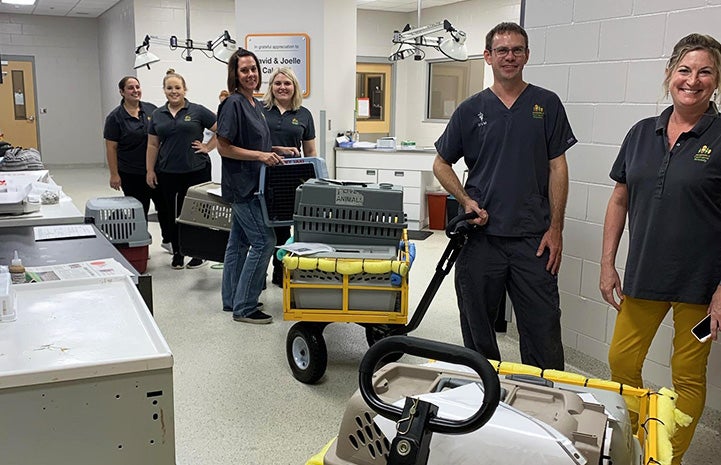
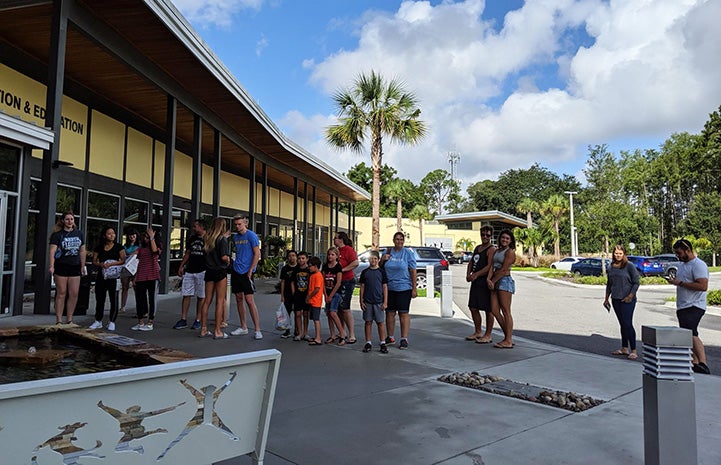
And even though JHS reported a 92% save rate in 2018, Denise is not resting on her laurels. Rather, her team rolls up their sleeves and gets to work where it’s needed most. In addition, they have created a hands-on training academy at JHS to share their expertise and teach participants how to implement lifesaving programs, and Denise remains accessible to troubleshoot issues as they arise.
Meanwhile in Delaware — the first no-kill state in the country — Brandywine Valley SPCA (BVSPCA) was on standby to receive yet more displaced animals after Hurricane Dorian. According to their website, BVSPCA (which has locations in Pennsylvania as well as Delaware) cares for more than 14,000 animals per year. Happy to help their neighbors, they ultimately routed several hundred animals from both of the Carolinas to their shelters before the storm.
BVSPCA also hosts incredibly successful mega adoption events that, on average, help about 1,000 pets find homes in a few days. BVSPCA’s philosophy is that collaboration is the only way to ensure success for everyone working in the service of homeless pets — regardless of region or organization.
Changing minds, saving lives
In 2016, three years before being recognized as a Network Partner Award recipient, Idaho Falls Animal Shelter was stuck in an old-fashioned sheltering model that resulted in 56% of the cats they took in being killed. Discouraged, staff simply did not believe the shelter would be able to achieve no-kill.
It all changed when two animal control officers, Danyelle Harker and Gayle Contreras, attended the Best Friends National Conference that year and were blown away by the enthusiasm and, perhaps best of all, the feeling that they weren’t alone. They returned home determined to save more lives, just as so many of us do after participating in this one-of-a-kind event.
After a gradual overhaul of their operations, which included implementing a new trap-neuter-return program, the shelter is now well above the no-kill threshold of a 90% save rate. In fact, Danyelle reported in August last year that Idaho Falls Animal Shelter had reached a save rate of 96% for cats and 98% for dogs. (Kudos, Idaho Falls. You’ve gone from feeling burnt out to being fired up.)
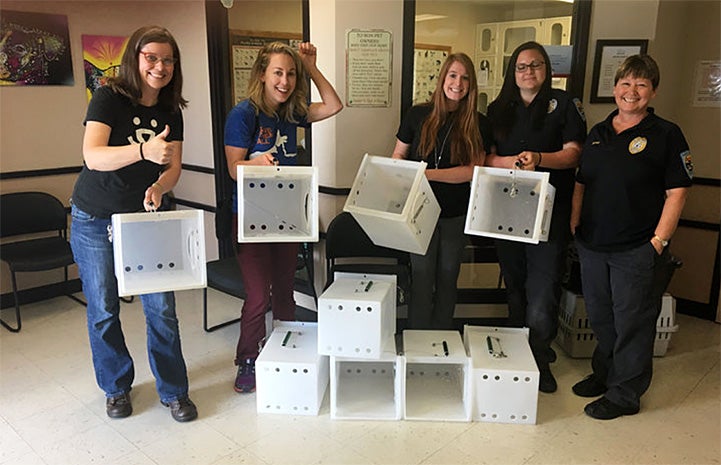
Caroline Hairfield, the director of Minneapolis Animal Care and Control (MACC), experienced similar moments of inspiration at the conference — in particular, during the keynote address of Best Friends CEO Julie Castle. Julie’s point that we must do what we can to draw a line when it comes to the killing of dogs and cats reminded Caroline why she is a voice for the voiceless.
The stories she has to tell on the animals’ behalf are encouraging, to say the least. For example, after a 90-day stay with MACC, a once barky and lunge-prone dog named Rocket recently found his forever home. Back in 2014, however, a dog like Rocket would never have made it out alive. That’s because Minneapolis had a policy preventing the adoption of certain dogs — including pit bulls, Rottweilers and German shepherds.
Combined with a five-day maximum hold period and outdated behavior evaluations, this meant that many adoptable dogs were being killed. With the support of Best Friends, the MACC team was able to change their policies and create new programs (like play groups, the tool that showed what a rock star Rocket had the potential to be) to save more lives.
Shelters get innovative
Across the Great Lakes from Minneapolis, Detroit Animal Care and Control (DACC) has also seen quick improvement by being open to change. As recently as 2017, DACC did not have an adoption program in place, but a new volunteer-run group supported the shelter to kick-start adoption and fostering of pets. The result? Well, their one-day foster program called Detroit Dogventures, which lets local residents take adoptable dogs out for a day of socialization, was evidence that the community cares — with lines of enthusiastic human participants winding around the block.
Meanwhile, to save more lives in Southern California, Orange County Animal Care embarked on some pretty progressive changes of their own. They approved and implemented a strategic operating plan that included a new campus and the appointment of a stellar new executive director, Mike Kaviani. In his first year alone, Mike oversaw an 11.5% increase in lifesaving.
Orange County has made many improvements, but they are most proud of their enhanced services for cats, such as the expansion of the foster program, which resulted in 1,047 cats and kittens entering foster homes in the first half of 2019. Award-worthy? We’d say so.
Teaming up for no-kill
Along with other municipalities around the country, the city of Dallas is seeing how partnerships between rescue groups and shelters are contributing to saving more lives. Rockwall Pets, a foster-based rescue group, began working with Dallas Animal Services (DAS) in 2012, a year in which the shelter saved only 38% of the 27,375 animals who came through their doors. This new relationship meant that DAS was able to transfer small dogs and puppies to Rockwall Pets, and consequently many more animals could have a positive outcome.
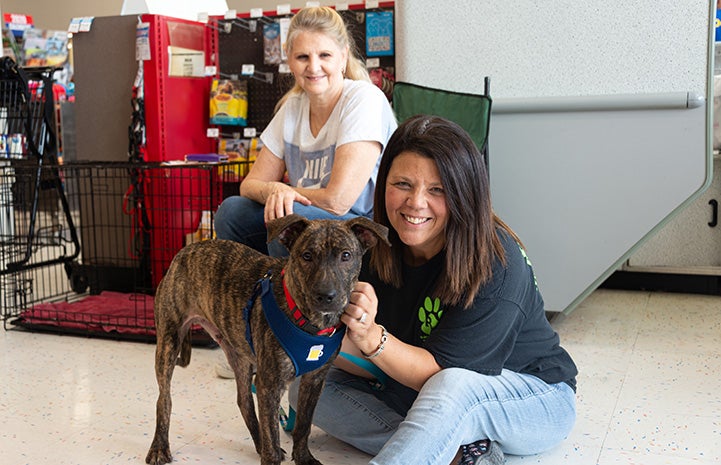
Today, things are looking much brighter. When Ed Jamison became DAS’s director in 2017, additional changes to operations meant that more pets were no longer at risk of being killed. Using its network contacts, the Rockwall Pets team built relationships with transport partners in the Midwest that could accept larger dogs, and DAS reported an 81% save rate in 2018.
In North Carolina, the Forsyth Humane Society (FHS) took its municipal partnership to the next level. And they did it by asking themselves a tough but simple question about local homeless pets: “How can we have the greatest impact in Forsyth County?” The answer wasn’t easy, but it was clear. So, in January 2018, FHS made a bold move and took over the contract for the troubled municipal shelter.
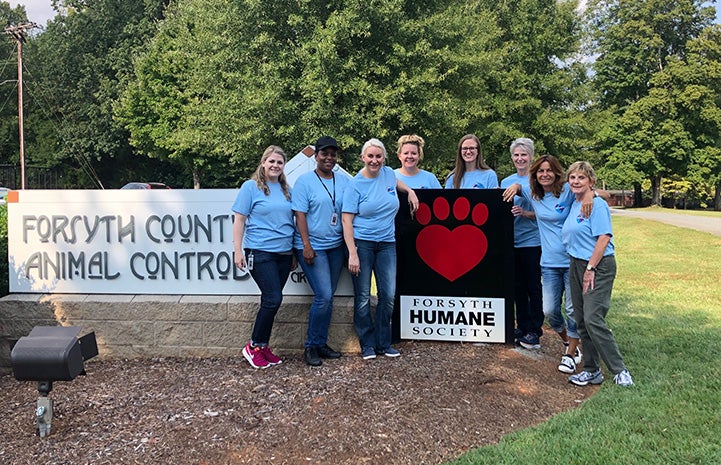
Executive director Sarah Williamson says she will never forget the early days of the transition. “We closed for two days and had put out the call to our community for help cleaning, organizing and moving in,” she remembers. “When I drove up to the shelter, I started crying with gratitude because the parking lot was full.”
With this kind of support, FHS increased its save rate from 36% in January 2018 to 71% by the end of that year, and the plan is to become no-kill by 2023. (You read that right.) Inspired by data presented at the Best Friends conference, FHS stopped breed-labeling and started adopting out more blocky-headed dogs, and, thanks to their online communications strategy, they share information to help keep pets at home and out of the shelter.
Small steps, big changes
If the strides that these organizations have made sound daunting, Doug and Wanda McGee of Second Chance Shelter in Boaz, Alabama, prove that you don’t need much to make a big difference. They set aside their careers and opened a small shelter to pull animals at high risk of being killed from local animal control departments. Using the power of volunteers, coupled with their own funds, they saved 872 pets in 2018 alone.
It’s the little things that can lead to the biggest leaps. Just ask Advancement Award winner Shannon Glenn, executive director of My Pit Bull is Family. The group partners with more than 200 diverse community stakeholders to end breed-based housing discrimination, which causes many dogs to be surrendered to shelters. The online national database lists rental properties that do not discriminate.
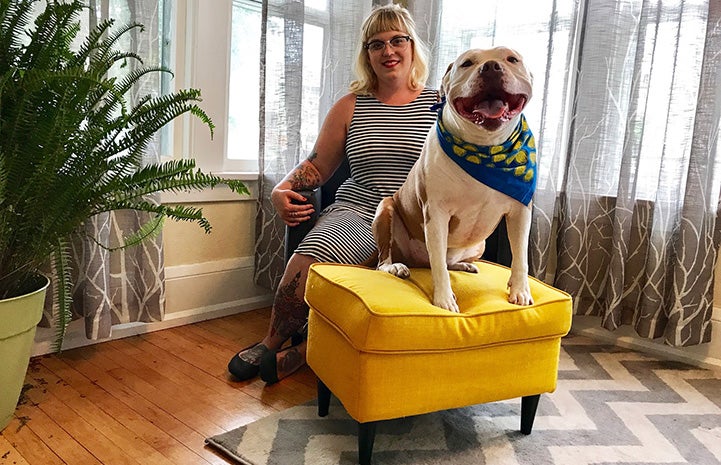
“We wanted to make sure that all the materials we have around creating inclusive pet policies can be in every community across the country,” Shannon says. Like her fellow award winner Denise Deisler, Shannon embodies the award’s goal to recognize individuals who think outside the box and make progress toward bringing the entire country to no-kill.
“To get to no-kill nationwide by 2025, it’s going to take the work of the thousands of Best Friends Network partners,” says Brent Toellner, Best Friends senior director of national programs. “The Network Partner Awards give us an opportunity to showcase how different types of organizations are advancing the movement and making positive strides in lifesaving.” Each one has challenged the status quo, demonstrating that by working together, we will Save Them All. See? We really do get by with a lot of help from our friends.
This article originally appeared in Best Friends magazine. You can subscribe to the magazine by becoming a Best Friends member.
Photos courtesy of OC Animal Care, Jacksonville Humane Society, Idaho Falls Animal Shelter, Rockwall Pets, Forsyth Humane Society and My Pit Bull is Family